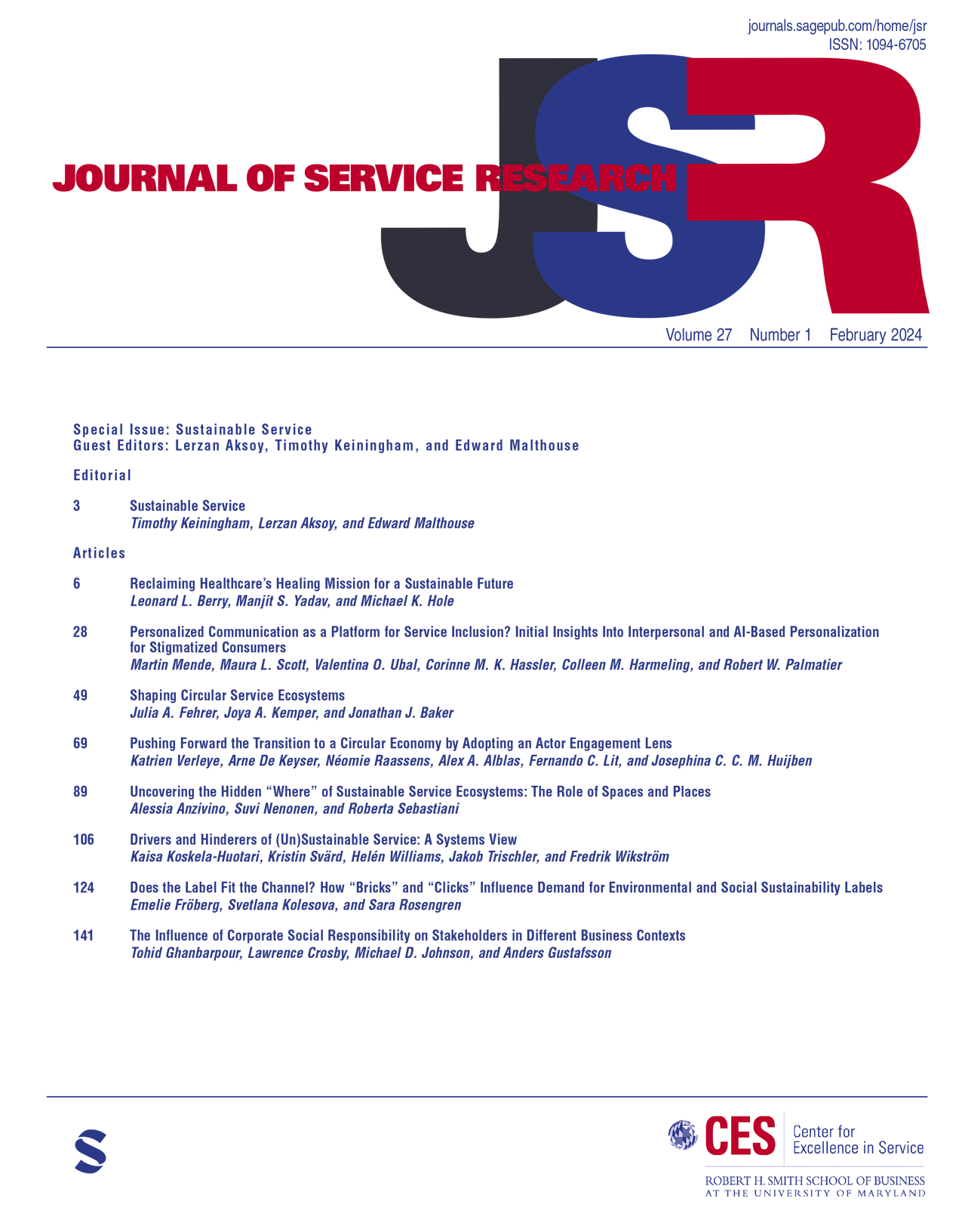特殊需求收缩期间的客户-销售人员价格谈判
IF 8.6
2区 管理学
Q1 BUSINESS
引用次数: 3
摘要
现存的文献研究了在“正常”情况下客户-销售人员价格谈判是如何演变的。然而,最近的经济衰退表明,在客户需求大幅收缩超出预期变化的“异常”时期,价格谈判如何演变的问题上,有必要推进理论。针对文献中的这一空白,本研究采用多方法设计来调查特殊需求收缩期间的价格谈判。我们的理论使用研究结果表明,在这种情况下,销售人员对客户的感知依赖增加,而客户对销售人员的感知依赖减少。这种内在的“权力转移”应该在随后的价格谈判中使客户受益。然而,如果客户与销售人员关系密切,他们就不太可能利用自己的权力,这意味着销售人员不必在价格谈判中让步。这种影响很可能是由于在需求异常收缩期间,人们的同情心增加了。作者在实地研究和基于场景的实验中进一步验证了该定性研究的关键命题。总之,这项研究表明,管理者不应该过于草率地批准和鼓励销售人员在特殊需求收缩时提供不必要的价格折扣,因为买家可能会在价格谈判中变得更加同情和宽容。图形抽象本文章由计算机程序翻译,如有差异,请以英文原文为准。
Customer–Salesperson Price Negotiations During Exceptional Demand Contractions
Extant literature has studied how customer–salesperson price negotiations evolve in “normal” circumstances. However, recent economic recessions illustrate the need to advance theory on the question of how price negotiations evolve in “abnormal” times when customer demand significantly contracts beyond expected variation. In response to this gap in the literature, this study uses a multi-method design to investigate price negotiations during exceptional demand contractions. Our results from a theories-in-use study reveal that during such circumstances, salespeople’s perceived dependency on customers increases while customers’ perceived dependency on salespeople decreases. The inherent “power shift” should benefit customers in subsequent price negotiations. However, customers are less likely to capitalize on their power if they have a close relationship with a salesperson, implying that salespeople do not have to concede on price negotiations. This effect is likely due to increased sympathy during periods of exceptional demand contractions. The authors further validate key propositions from this qualitative study in a field study and a scenario-based experiment. Altogether, this study suggests that managers should not be too hasty in approving and encouraging salespeople to offer unnecessary price discounts during exceptional demand contractions as buyers may become more sympathetic and lenient during price negotiations. Graphical Abstract
求助全文
通过发布文献求助,成功后即可免费获取论文全文。
去求助
来源期刊

Journal of Service Research
BUSINESS-
CiteScore
20.30
自引率
6.50%
发文量
28
期刊介绍:
The Journal of Service Research (JSR) is recognized as the foremost service research journal globally. It is an indispensable resource for staying updated on the latest advancements in service research. With its accessible and applicable approach, JSR equips readers with the essential knowledge and strategies needed to navigate an increasingly service-oriented economy. Brimming with contributions from esteemed service professionals and scholars, JSR presents a wealth of articles that offer invaluable insights from academia and industry alike.
 求助内容:
求助内容: 应助结果提醒方式:
应助结果提醒方式:


